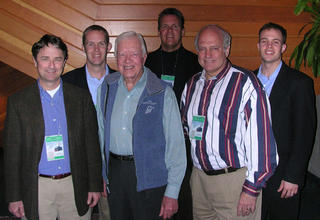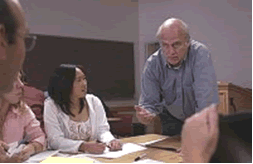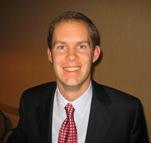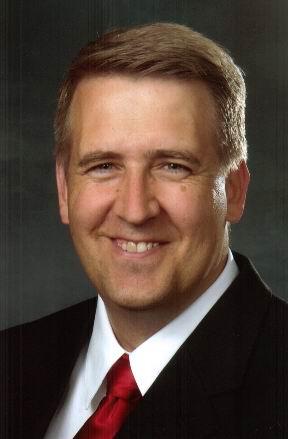Unitus and ACCION and the Clinton Global Initiative
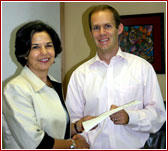
Maria Otero (ACCION International) & Geoff Davis (Unitus)
In a recent post, I mentioned the Clinton Global Initiative and how there would be exciting news from the conference that related to Unitus.
Well, in a just published Unitus Newsletter, we learn more about this exciting development.
Here is from the newsletter:
From September 15-17, former President Clinton convened world leaders in New York City for the Clinton Global Initiative. They discussed four main goals: poverty reduction; religious reconciliation; combating climate change; and strengthening governments and economies. Unlike many other conferences, Clinton asked each participant to commit to action in one of these four areas. In his words, "If you don't want to make a commitment, don't come; and if you don't follow through on a commitment, don't come back."
We were up to the task. Together with ACCION, our partner in the Unitus-ACCION Alliance for India, we pledged to provide microfinance services to 15 million of India's working poor by 2015. This commitment was one of only four recognized at the Friday evening plenary session. In fact, President Clinton himself presented the commitment certificate to Unitus Board Vice Chair Elizabeth Funk and ACCION President and CEO Maria Otero!
The meetings were a tremendous success, with participants committing more than $1.25 billion to work toward the Intiative's goals. We are energized by the work ahead of us, and we pledge to not only report back to President Clinton at this time next year, but to keep you informed about our progress every step of the way.
I am very excited and pleased for such great involvement. A big thanks needs to go to Elizabeth Funk and the ACCION team for all their behind the scenes work to get this initiative accepted.


